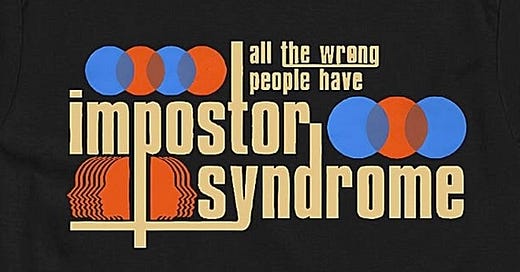“Sharing misinformation can be catastrophic, especially during times of national importance. Typically studied in political contexts, the sharing of fake news has been positively linked with conservative political ideology. However, such sweeping generalizations run the risk of increasing already rampant political polarization. We offer a more nuanced account by proposing that the sharing of fake news is largely driven by low conscientiousness conservatives. At high levels of conscientiousness, there is no difference between liberals and conservatives.”
— Lawson, M. A., & Kakkar, H. (2022). Of pandemics, politics, and personality: The role of conscientiousness and political ideology in the sharing of fake news. Journal of Experimental Psychology: General, 151(5), 1154–1177. https://doi.org/10.1037/xge0001120 (https://psycnet.apa.org/doi/10.1037/xge0001120)
Because "low conscientiousness" people don't have the conscientiousness to know their conscientiousness is low, they insist that it's high.
According to psychologist Robert D. McIntosh and his colleagues, this concept is sometimes understood in popular culture as the notion that "stupid people are too stupid to know they are stupid." But the Dunning–Kruger effect applies not to intelligence in general but to intelligence in specific things, in specific areas, in specific disciplines. Knowledge and skill in one thing doesn't mean knowledge and skill in another. The mathematician isn't an expert in Constitutional law. The personal injury attorney isn't an expert in physics. The accountant isn't likely to be an expert in metallurgy. The linguist isn't likely to be an expert in 18th-century French political theory.
This reminds me of a joke.
Do you know what the difference between God and a surgeon is?
God doesn't think he's a surgeon.
Medical doctors and lawyers in our society are often given more credit for knowledge they don't possess. But they're unlikely to admit it.
The sad truth in America is that the average American reads at an 8th-grade level, with a large percentage reading well below that. The amount of time devoted to daily reading is negligible, with the reading being almost exclusively novels. Novels are wonderful and can make a person more empathetic, more tolerant, and more understanding. But they are seldom the source for knowledge about the more pressing issues of our day.
Despite the very limited exposure to abstract thought and intellectually challenging material, everyone has an opinion they believe is true, irrespective of whether their opinions are informed or not. Having the capacity for opinion without the necessary skillset to make valid, rational, logical, and well-founded conclusions, they muddy the waters with bombast, sarcasm, and the Gish gallop.
"The first principle is that you must not fool yourself, and you are the easiest person to fool." - Richard P. Feynman

 Tiktok failed to load.
Tiktok failed to load.Enable 3rd party cookies or use another browser




